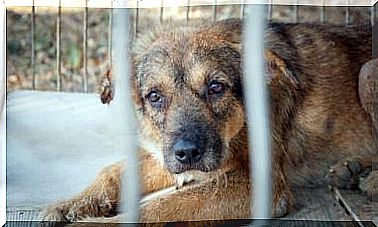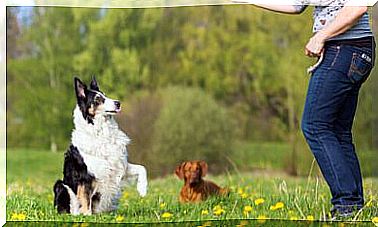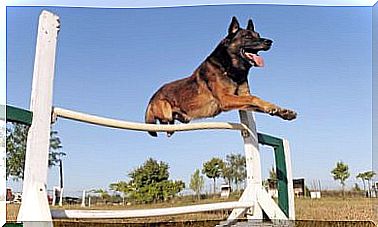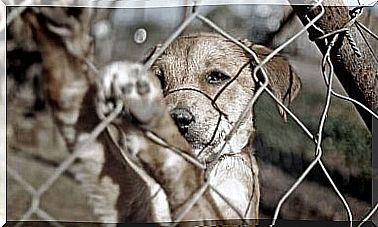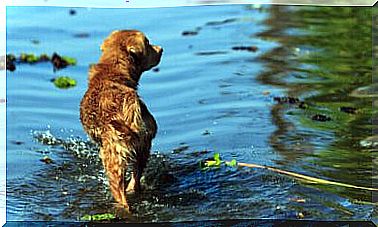Natural Fibers For Dogs, Discover All The Benefits

It is essential that our dog consumes balanced quantities of food, but it is also important that all the nutrients he needs to keep fit are present in his diet .
It is therefore possible to say that when it comes to feeding our animal, we must keep in mind both the quantity and, of course, the quality of the food.
One substance that must always be present in his diet is fiber, otherwise he could suffer from severe intestinal disorders. However, you may be wondering how fiber is obtained and why it is so important.
In this article, we will explain the reasons why natural fibers are absolutely necessary for dogs.
What are natural fibers
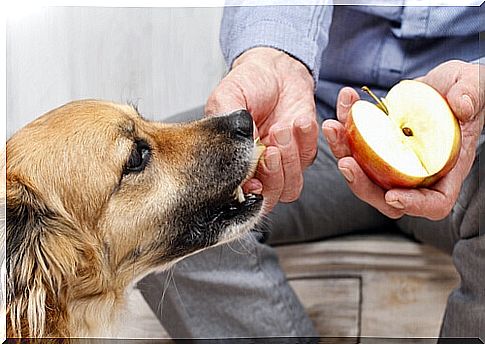
To begin with, you will probably be interested in knowing that natural fibers represent that part of food of plant origin that is not ingested, and which in no case is absorbed by the body. There are two types of fibers: insoluble ones and soluble ones.
The insoluble fibers pass through the animal’s digestive tract and, as the name suggests, do not dissolve in water. For this reason, they favor the formation of feces, through which they are then expelled more easily.
The soluble fibers, on the contrary, absorb water and slow down the digestive process, forming a sort of gel which causes the nutrients are absorbed by the walls of the stomach and intestine with slowness, which is useful for controlling some pathologies in dogs.
Benefits of natural fibers for our dog
Let’s find out together a series of benefits that our dog will obtain by consuming natural fibers:
- They serve to improve intestinal transit.
- By improving transit, they prevent the dog from suffering from constipation, avoiding all the hassles and difficulties related to it.
- They are indicated to combat the formation of hairballs in the intestine, as they help the dog to expel them.
- They help to decrease the cholesterol level in the pet’s blood, as well as triglycerides, saving the dog from various health problems.
- They allow it to eliminate any excess fat in the blood.
- They help to make the dog better eliminate toxins from his body.
- They improve the dog’s intestinal flora.
- When our pet consumes natural fibers, he reaches satiety in a short time, so they serve to calm his appetite. They are therefore particularly suitable for dogs with weight problems or for those who overeat and need to fight this anxiety.
- They facilitate the reduction of the glycemic index, essential for fighting diabetes, another disease that affects dogs.
How to give your dog fiber
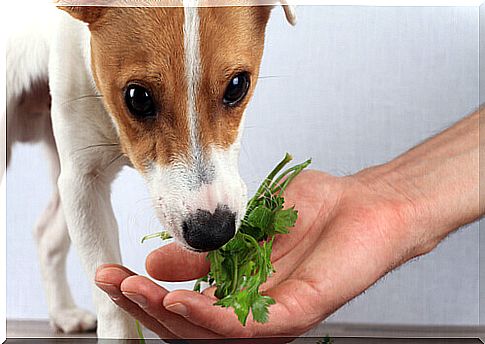
One of the alternatives to get your dog to ingest the natural fibers it needs is to use feed already rich in fiber (which you can find on the market without great difficulty). However, you can decide to include the following foods in your diet:
- Wheat bran. Try putting half a teaspoon of this product in your dog’s food. Moistening it with a little water will facilitate digestion.
- Apple. This fruit is extremely rich in fiber, and is therefore ideal in these cases. Be careful with the quantities, however, because an excessive dose could be harmful to the animal. Also avoid letting him ingest the heart and seeds of the fruit, which could be toxic.
Cook an apple and then make a puree. Add a spoonful to his feed, and you will have greatly improved his diet.
- Rice. A third option is to give him some brown rice from time to time. You can make it soupy to make it more appetizing to the dog, which will eat it more easily.
- Cooked pumpkin. Here is another perfect food for our goal, if given in small doses. You can incorporate a spoonful of pumpkin into his daily meal.
- Cooked vegetables such as peas, carrots or green beans. You may need to introduce them to your dog accompanied by some other food, as not everyone finds them appetizing.
As we have seen, natural fibers are essential for dog health, and now you finally know where to find them and why. In any case, consult your veterinarian to find out all the steps necessary for the correct nutrition of your pet.

